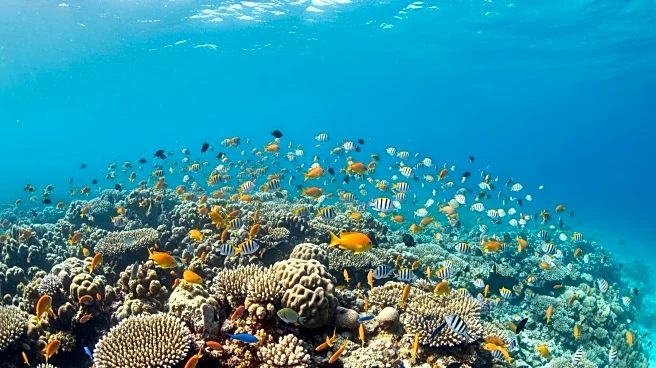What is the story about?
What's Happening?
A recent study led by the Smithsonian Tropical Research Institute has documented the failure of the seasonal upwelling in the Gulf of Panama for the first time in over four decades. Upwelling, a process where cold, nutrient-rich water rises to the surface, typically occurs between December and April, driven by northern trade winds. This phenomenon is crucial for maintaining cooler coastal waters, protecting coral reefs, and supporting productive fisheries. The study suggests that weakening trade winds, possibly influenced by the Intertropical Convergence Zone's position during the 2024-2025 La Niña, led to the failure of this predictable event. The absence of upwelling has resulted in warmer waters and decreased fisheries productivity, highlighting the vulnerability of wind-driven tropical upwelling systems to climate disruption.
Why It's Important?
The failure of upwelling in the Gulf of Panama has significant implications for the region's marine ecology and economy. Fisheries, which rely on the nutrient-rich waters brought by upwelling, are likely to suffer reduced productivity, impacting local economies dependent on fishing. Additionally, coral reefs, which benefit from cooler waters, may experience increased thermal stress, threatening biodiversity. This event underscores the broader impact of climate change on marine systems and the need for improved monitoring and research to understand and mitigate these effects. The study serves as a reminder of the interconnectedness of climate patterns and their influence on ecological and economic stability.
What's Next?
Further research is needed to fully understand the mechanisms behind the failed upwelling and its long-term impacts on the Gulf of Panama's marine environment. Scientists may focus on monitoring trade wind patterns and the position of the Intertropical Convergence Zone to predict future occurrences. Policymakers and environmental groups might advocate for increased funding and resources to study and protect vulnerable marine ecosystems. The fishing industry may need to adapt to changing conditions, potentially exploring alternative methods or diversifying to maintain economic viability.















